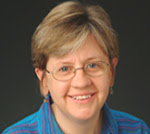After two years of resisting, I have finally concluded that it’s time to start blogging myself instead of just telling my students to do it. I already do a fair amount with wikis and podcasts so jumping in to the blogosphere is not so farfetched. My reasons for blogging vary but all come back to attempting to better understand this phenomenon called Web 2.0 and its impact on content. Writing is very much tied to voice and when I started to read blogs I was put off by what I took to be people with too little experience claiming too much space. I have come to view this more as a generational and cultural gap and see that my assumptions about others were misplaced. The blogosphere appears to be more a state of mind, and a relaxed, informal one at that, than a statement of voice. As a library school professor I am uncomfortable with the level of authority that my students give me, perhaps they do so because of my age, experience, or the fact that I have a Ph.D. Any one of these may have contributed to a voice that sounds authoritative. Still, underneath I question and doubt myself just as they do. I enter the world of blogging with trepidation and request that more experienced folks send advice rather than criticism.
So why “ContentReflections” you may ask? Where is the accent in the first word – on which syllable? Is content an adjective or a noun? Forgive me the joke but it’s part of a greater point. I am very much interested in content, printed and digital, and how people use it. The recent, tumultuous, years of my life (finally get the Ph.D., work in the dotcom world for nine glorious months, experience employer’s bankruptcy and unemployment, grant-funded job and more unemployment, and now work as an academic) have left me somewhat discontented but have forced me to look at and reflect on content much more than I would have otherwise.
I had worked as a practicing librarian for more than a decade when I decided to return to school and pursue a doctorate. I was motivated to do so because of concerns about technological disparities and inequities surrounding access to information. One thing that my doctoral program drilled into me was the importance of critical thinking. It may not be surprising that when I finished my degree and started working with a team that was developing a content tagging business this became a critical skill. As I created taxonomies I thought about how people approach content. We were partnering with RR Donnelley and so in large part I thought way too much about mundane content such as mail order catalogs. But later when I managed the development of a digital book repository at the University of Chicago Press I had the same questions but about more esoteric publications. Well, okay, maybe not all of the publications were that esoteric – as I recall, some of the titles were regional cookbooks or about fishing in one state or another. Still, the questions remained. How do people use content and what impact do formats or delivery mechanisms have on that usage? Do they promote and facilitate use or discourage it? As an academic I wonder what the impact is on learning.
I teach and distribute reading lists that I joke would be more aptly named reading, listening and viewing lists. I want future librarians and information professionals to analyze their experiences as they interact with this content so they better understand the perspective of library users and non-users. I require students to create podcasts and to collaborate using wikis to force them to move beyond the familiar image of librarian as manager and disseminator of information. Although the traditional model of publishing still exists it is being given a run for its money by upstart individuals who are creating and distributing content independently in the Web 2.0 world. Librarians count as some of those upstart individuals, including me.
Which brings me to the end of this initial posting. I hope to use ContentReflections to talk about content in an informal way, and to reflect on how I or others use it or abuse it on a daily basis. I’d welcome your participation and thoughts on the subject.
Subscribe to:
Post Comments (Atom)

5 comments:
Hi Mary Alice
My web 2.0 experience is basically non-existent, but recently I have come to understand how important it is to my work. Mostly I have gone to blog sites to get information and opinions of those who seem to know what is going on with political and social movements. Although I see the value in understanding a larger sphere of information in this way, I also see the impact that blogging actually has in setting political and social agendas (for those who blog, anyway)....so which is the chicken and which is the egg? ..and isn't that the whole point of blogs...to influence thought? I think there may be a need for some sort of rating system for blogs other than how many people go to the site.(maybe there is...?)Who would do that and how would it look is yet another interesting question.
peace,
Loretta
The librarian's key responsibility is efficient and effective information retrieval. Leave the content to the client or student.
The important and duly answer
It can be discussed infinitely
Yes, it is the intelligible answer
I suggest you to visit a site on which there is a lot of information on this question. Hot Health
Post a Comment